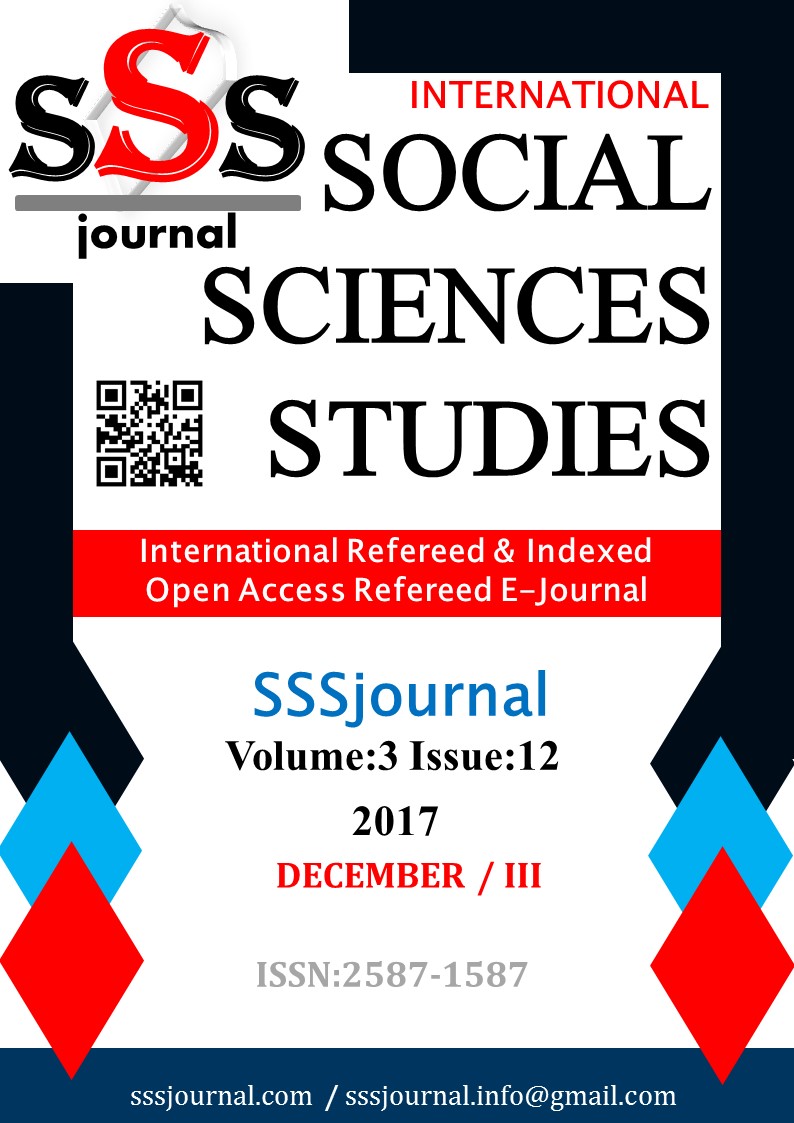Author :
Abstract
Çalışmamız, 2016-2017 eğitim öğretim yılında Rusya’da ve Türkiye’de tarih ders kitabı içerisinde yer alan Kırım Harbini konu almıştır. Bunun için Rusya’da 8. Sınıf tarih ders kitabı olarak kullanılan Danilov ve Kosulina’nın 2015 yılında yayınlanan “İstoriya Rossii” Rusya’nın Tarihi adlı tarih ders kitabı ile Tüysüz’ün 2015 yıllında yayınlanan 10. Sınıf Orta Öğretim Tarih Ders Kitabı incelenmiştir. Elde dilen veriler betimsel analiz yoluyla çözümlenmiştir. Harita ve görsellerin kullanıldığı iki tarih ders kitabında da konuyu ele alış şekilleri ve öğrencilere sundukları bilgilerde benzerlikler ve farklılar gözler önüne serilmeye çalışılmıştır. Bu sayede, öğrencilerin Kırım Harbi konusu iki farklı pencereden bakarak, tarihsel düşünce becerilerini, empati yeteneklerini analitik düşünce becerilerini geliştirmelerine yardımcı olmak amaçlandı. Çalışma sonucunda, Türkiye’de okutulan tarih ders kitabının, sayısal veri vermede, kişi ve yer isimleri kullanımında ve aidiyet duygusu geliştirmede yetersiz olduğu, konunun yüzeysel işlendiği öte yandan Rus tarih ders kitabının, gerek milli duyguların aşılanması noktasında, gerekse, öğrencilere sunduğu verilerle Türk tarih kitabına göre daha ayrıntılı olduğu bilgisine ulaşılmıştır.
Keywords
Abstract
This paper studies Crimean War subjected to history books of Russia and Turkey in 2016 – 2017 school year. Two history subject textbooks were used in the study as research instruments. The former of these is “İstoriya Rossii” History of Russia published by Danilov and Kosulina in 2011, and used as Grade 8 History Textbook in Russia, and the latter is Grade 10 Secondary Education History Textbook published by Tüysüz in 2015. The data was analyzed descriptively. Both of the textbooks, where visuals and maps were used, were examined in terms of similarities and differences in the information they present to students, and the way they convey the information. Thus, by viewing the Crimean War from two perspectives, the aim was to help students improve not only their empathy skills but also their historical and analytical thinking skills. The results of the study showed that Turkish textbook is inadequate and poor at giving numeric data, using of person and place names, and improving sense of belonging, and the book handles the subject more shallowly, while Russian textbook is better not only at imposing national values but also at presenting data compared to Turkish textbook.
Keywords
- Aytekin, S. (2009). Türkiye’de Tarih Eğitimi. (Semih Aytekin, Penelope Harnett vd. ). Çok Kültürlü Bir
- Aytekin, S. (2009). Türkiye’de Tarih Eğitimi. (Semih Aytekin, Penelope Harnett vd. ). Çok Kültürlü Bir Avrupa İçin Tarih ve Sosyal Bilgiler Eğitimi. 27-44. Harf Eğitim Yayıncılığı. Ankara
- Başaran, V. (2012). “Çarlık Dönemi Rus Tarih Ders Kitaplarında Osmanlı İmgesi.” Trakya Üniversitesi Edebiyat Fakültesi Dergisi, 2(3), 201-221
- Danilov, A. A. ve Kosulina, L. G. (2015). “İstoriya Rossii” XIX Vek. Rusya’nın Tarihi 8. Sınıf. Moskova; Prosveşeniye.
- Gültek, V. (2012). Rusça Türkçe Sözlük. Multılıngual yayınları. İstanbul
- Karayaman, M. (2008). “Kırım Harbinde Sağlık Hizmetleri (1853-1855).” Uşak Üniversitesi Sosyal Bilimler Dergisi. 1(2), 59-75
- Keleş, E. (2008).”Kırım Savaşı’nda (1853-1856) Karadeniz ve Boğazlar Meselesi.” OTAM (Ankara Üniversitesi Osmanlı Tarihi Araştırma ve Uygulama Merkezi Dergisi) Sayı: 23, 149-194
- Rossiyskiy, B. (2003). Entsiklopediçeskiy Slovar, BRE, Moskva
- Safran, M. & Ata, B. (1996). “Barışçı tarih öğretimi üzerine çalışmalar; Türkiye’de tarih ders kitaplarındaYunanlılara ilişkin kullanılan dil ve Yunanlılara ilişkin öğrenci görüşleri.” G.Ü. Gazi Eğitim Fakültesi Dergisi, I, 11-26.
- Şimşek, A. ve Cengiz, N. M. (2015). “Rusya Tarih Ders Kitaplarında Türk-Osmanlı İmgesi.” TUHED, 4(2), 225-258
- Torun, S. (2008).Kırım Savaşı’nda Hasta Bakımı ve Hemşirelik. (Yayınlanmamış Doktora Tezi) Çukurova Üniversitesi Sağlık Bilimleri Enstitüsü Deontoloji ve Tıp Tarihi Anabilim Dalı. Adana,
- Tüysüz, S. (2015). Orta Öğretim Tarih Ders Kitabı 10. Sınıf. Tuna Matbaacılık. Ankara





